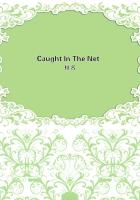It is not for us old courtiers,he said,to hide the sunshine from the young ones.I will,with her Majesty's leave,relinquish for an hour that which her subjects hold dearest,the delight of her Highness's presence,and mortify myself by walking in starlight,while I forsake for a brief season the glory of Diana's own beams.I will take place in the boat which the ladies occupy,and permit this young cavalier his hour of promised felicity.The Queen replied,with an expression betwixt mirth and earnest,If you are so willing to leave us,my lord,we cannot help the mortification.But,under favour,we do not trust you--old and experienced as you may deem yourself--with the care of our young ladies of honour.Your venerable age,my lord,she continued,smiling,may be better assorted with that of my Lord Treasurer,who follows in the third boat,and by whose experience even my Lord Willoughby's may be improved.Lord Willoughby hid his disappointment under a smile--laughed,was confused,bowed,and left the Queen's barge to go on board my Lord Burleigh's.Leicester,who endeavoured to divert his thoughts from all internal reflection,by fixing them on what was passing around,watched this circumstance among others.But when the boat put off from the shore--when the music sounded from a barge which accompanied them--when the shouts of the populace were heard from the shore,and all reminded him of the situation in which he was placed,he abstracted his thoughts and feelings by a strong effort from everything but the necessity of maintaining himself in the favour of his patroness,and exerted his talents of pleasing captivation with such success,that the Queen,alternately delighted with his conversation,and alarmed for his health,at length imposed a temporary silence on him,with playful yet anxious care,lest his flow of spirits should exhaust him.
My lords,she said,having passed for a time our edict of silence upon our good Leicester,we will call you to counsel on a gamesome matter,more fitted to be now treated of,amidst mirth and music,than in the gravity of our ordinary deliberations.
Which of you,my lords,said she,smiling,know aught of a petition from Orson Pinnit,the keeper,as he qualifies himself,of our royal bears?Who stands godfather to his request?Marry,with Your Grace's good permission,that do I,said the Earl of Sussex.Orson Pinnit was a stout soldier before he was so mangled by the skenes of the Irish clan MacDonough;and Itrust your Grace will be,as you always have been,good mistress to your good and trusty servants.Surely,said the Queen,it is our purpose to be so,and in especial to our poor soldiers and sailors,who hazard their lives for little pay.We would give,she said,with her eyes sparkling,yonder royal palace of ours to be an hospital for their use,rather than they should call their mistress ungrateful.But this is not the question,she said,her voice,which had been awakened by her patriotic feelings,once more subsiding into the tone of gay and easy conversation;for this Orson Pinnit's request goes something further.He complains that,amidst the extreme delight with which men haunt the play-houses,and in especial their eager desire for seeing the exhibitions of one Will Shakespeare (whom I think,my lords,we have all heard something of),the manly amusement of bear-baiting is falling into comparative neglect,since men will rather throng to see these roguish players kill each other in jest,than to see our royal dogs and bears worry each other in bloody earnest.--What say you to this,my Lord of Sussex?
Why,truly,gracious madam,said Sussex,you must expect little from an old soldier like me in favour of battles in sport,when they are compared with battles in earnest;and yet,by my faith,I wish Will Shakespeare no harm.He is a stout man at quarter-staff,and single falchion,though,as I am told,a halting fellow;and he stood,they say,a tough fight with the rangers of old Sir Thomas Lucy of Charlecot,when he broke his deer-park and kissed his keeper's daughter.I cry you mercy,my Lord of Sussex,said Queen Elizabeth,interrupting him;that matter was heard in council,and we will not have this fellow's offence exaggerated--there was no kissing in the matter,and the defendant hath put the denial on record.
But what say you to his present practice,my lord,on the stage?
for there lies the point,and not in any ways touching his former errors,in breaking parks,or the other follies you speak of.Why,truly,madam,replied Sussex,as I said before,I wish the gamesome mad fellow no injury.Some of his whoreson poetry (I crave your Grace's pardon for such a phrase)has rung in mine ears as if the lines sounded to boot and saddle.But then it is all froth and folly--no substance or seriousness in it,as your Grace has already well touched.What are half a dozen knaves,with rusty foils and tattered targets,****** but a mere mockery of a stout fight,to compare to the royal game of bear-baiting,which hath been graced by your Highness's countenance,and that of your royal predecessors,in this your princely kingdom,famous for matchless mastiffs and bold bearwards over all Christendom?
Greatly is it to be doubted that the race of both will decay,if men should throng to hear the lungs of an idle player belch forth nonsensical bombast,instead of bestowing their pence in encouraging the bravest image of war that can be shown in peace,and that is the sports of the Bear-garden.There you may see the bear lying at guard,with his red,pinky eyes watching the onset of the mastiff,like a wily captain who maintains his defence that an assailant may be tempted to venture within his danger.













